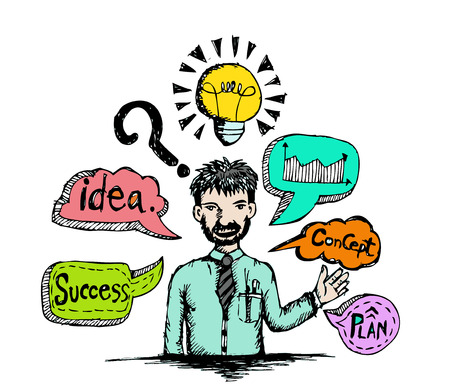1. Introduction: The Landscape for LGBTQ+ Social Entrepreneurship in India
The vibrant and diverse social fabric of India is increasingly witnessing the emergence of LGBTQ+ individuals stepping into the realm of social entrepreneurship. While India has made notable progress with the decriminalisation of Section 377 and growing public discourse around LGBTQ+ rights, the journey for aspiring queer social entrepreneurs remains layered with unique challenges and opportunities. Social entrepreneurship, deeply rooted in Indias tradition of community-based solutions or “jugaad”, offers a promising path for LGBTQ+ people to drive positive change while building sustainable livelihoods. However, societal stigma, limited access to funding, and a lack of representation in mainstream business circles continue to pose significant hurdles. At the same time, there is a powerful movement towards inclusion, with grassroots organisations, local collectives, and urban innovators increasingly recognising the potential of LGBTQ+ leadership in solving complex social issues. As Indian society becomes more open to conversations on gender and sexuality—especially among youth in metros like Mumbai, Delhi, and Bengaluru—the cultural context is gradually shifting from exclusion to cautious acceptance. This evolving landscape creates space for LGBTQ+ changemakers to channel their lived experiences into innovative solutions that not only uplift their own communities but also contribute to broader social development.
Influence of Indian Culture and Legal Landscape
India’s cultural and legal context significantly shapes the social entrepreneurship opportunities available for the LGBTQ+ community. The interplay of deep-rooted traditional values, diverse religious beliefs, and evolving legal frameworks creates a unique environment that both challenges and inspires social innovation.
Traditional Values and Social Norms
Indian society is characterized by strong family bonds, respect for elders, and adherence to traditional customs. For centuries, these norms have influenced public perceptions about gender and sexuality. While historical texts like the Kama Sutra and depictions in temple art indicate a more fluid understanding of sexuality in ancient times, colonial-era laws and Victorian morality reinforced stigma towards LGBTQ+ identities. Today, many LGBTQ+ individuals still face pressure to conform to heteronormative expectations such as marriage and childbearing.
Religious Beliefs
India’s pluralistic society includes Hinduism, Islam, Christianity, Sikhism, Buddhism, Jainism, and other faiths. Each religion holds its own perspectives on gender diversity and sexual orientation. For instance:
| Religion | Traditional Perspective on LGBTQ+ |
|---|---|
| Hinduism | Historically recognized third-gender (Hijras), but contemporary views vary by community. |
| Islam | Generally conservative; social acceptance is limited due to religious interpretations. |
| Christianity | Varies across denominations; often shaped by Western colonial influence. |
| Sikhism & Others | Largely silent or neutral; acceptance depends on local customs. |
This religious diversity presents both barriers and opportunities for social entrepreneurs working with LGBTQ+ communities, requiring culturally sensitive approaches that engage local leaders and traditions.
Legal Milestones Shaping LGBTQ+ Rights
The legal landscape has undergone major transformations in recent years. Notable milestones include:
- 2014: Supreme Court recognizes transgender people as a third gender.
- 2018: Section 377 partially struck down, decriminalizing consensual same-sex relations among adults.
- 2019: Transgender Persons (Protection of Rights) Act passed, providing anti-discrimination protections.
Despite these advances, implementation remains inconsistent at local levels, and discrimination persists in workplaces, education, healthcare, and families. However, these legal changes have also empowered a new generation of activists and social entrepreneurs to address systemic inequalities through innovative ventures.
Navigating Cultural Sensitivities for Impactful Change
To unlock social entrepreneurship opportunities for India’s LGBTQ+ community, it is essential to understand the complexities of Indian culture alongside the evolving legal framework. By respecting traditions while advocating for progressive change, entrepreneurs can create sustainable solutions that bridge divides—fostering dignity, inclusion, and economic empowerment for all.

Role Models and Success Stories from Within the Community
India’s LGBTQ+ community has witnessed a remarkable rise in social entrepreneurs and grassroots leaders who are driving meaningful change. These role models not only challenge stereotypes but also create sustainable solutions tailored to local contexts. Take for example Keshav Suri, who launched The Lalit Group’s ‘#PureLove’ campaign, ensuring inclusive hiring practices and safe spaces across hotel properties. Another inspiring figure is Ritu Dalmia, a celebrated chef and restaurateur, who has used her platform to advocate for LGBTQ+ rights while supporting community-based food ventures.
Grassroots initiatives like Yaariyan in Mumbai and Nazariya: A Queer Feminist Resource Group in Delhi have played pivotal roles in empowering queer individuals to access skills, resources, and legal support. In southern India, collectives such as Aravani Art Project employ transgender artists, transforming public spaces with murals that tell stories of resilience and pride. Start-ups such as Pride Circle are creating employment opportunities for LGBTQ+ talent by connecting them with forward-thinking companies committed to diversity and inclusion.
The journeys of these changemakers inspire countless others in small towns and urban centres alike. Their success stories reflect the power of leveraging Indian values of community, entrepreneurship (‘jugaad’ spirit), and collective progress. By seeing people from their own backgrounds lead the way, more LGBTQ+ youth are encouraged to dream big, take risks, and contribute meaningfully to society through innovative enterprises.
4. Local Challenges: Stigma, Access to Capital, and Community Networks
Despite progressive legal developments like the decriminalization of Section 377, LGBTQ+ individuals in India continue to face multi-layered challenges that impact their ability to pursue social entrepreneurship. These lived realities are deeply influenced by cultural norms, societal attitudes, and systemic barriers at the local level.
Stigma and Discrimination
LGBTQ+ entrepreneurs often encounter stigma both within their families and in the broader community. Deep-rooted prejudices can lead to isolation, exclusion from mainstream business networks, and limited visibility for queer-led ventures. This social climate impacts mental health, reduces opportunities for collaboration, and can discourage aspiring changemakers from stepping forward.
Financial Obstacles: Access to Capital
Securing funding is a major barrier for LGBTQ+ social entrepreneurs in India. Many traditional financial institutions operate with implicit bias, making it difficult for openly queer individuals or organizations to access loans or grants. Family support—a critical source of seed capital in Indian society—is frequently withheld due to non-acceptance of gender or sexual identity.
| Challenge | Impact on LGBTQ+ Entrepreneurs | Potential Solutions |
|---|---|---|
| Bank Loans Denied | Difficulty scaling ventures; limited formal credit options | LGBTQ+-friendly microfinance programs |
| No Family Support | Lack of seed funding; greater risk aversion | Queer-focused angel investor networks |
| Lack of Collateral | No assets to secure loans; restricted access to government schemes | Community crowdfunding initiatives |
The Importance of Community Networks (Sangathans)
Supportive networks—such as local sangathans (community groups), NGOs, and digital forums—play a vital role in enabling LGBTQ+ entrepreneurs to overcome challenges. These networks offer mentorship, skill development opportunities, and emotional solidarity. They also act as bridges between marginalized individuals and mainstream markets by facilitating collaborations with allies and supporting advocacy for policy change.
Cultural Context: The Power of Collective Action (Sabka Saath)
The Indian concept of “Sabka Saath” (togetherness) is especially relevant in this context. By fostering safe spaces and peer-to-peer support systems, local collectives can help break cycles of discrimination while promoting entrepreneurial resilience among LGBTQ+ youth and adults alike.
5. Harnessing Indian Social Innovations and Inclusive Business Models
India has a rich history of social innovation and community-led business models, which can be powerfully harnessed to create sustainable opportunities for the LGBTQ+ community. By exploring scalable approaches rooted in local culture—such as Jugaad, self-help groups (SHGs), and collective enterprises—social entrepreneurs can build ventures that are both inclusive and impactful.
Jugaad: Flexible and Resourceful Solutions
The spirit of Jugaad, a uniquely Indian concept of frugal innovation, encourages finding creative solutions with limited resources. For LGBTQ+ entrepreneurs, embracing Jugaad means adapting existing business models, technologies, or distribution channels to overcome barriers like social stigma or funding constraints. Examples include forming informal networks for skill-sharing, leveraging digital platforms for e-commerce, and developing community-based micro-enterprises that require minimal startup capital.
Empowering through Self-Help Groups
Self-help groups have long been a cornerstone of grassroots economic empowerment in India. Adapting the SHG model for LGBTQ+ individuals can foster peer support, capacity building, and collective bargaining power. These groups can engage in activities such as handicraft production, catering services, or urban gardening, while also providing safe spaces for members to address social challenges together. By connecting with existing women’s SHGs or microfinance institutions, LGBTQ+ SHGs can access wider markets and financial resources.
Community-Driven Enterprises
Community-driven enterprises tap into traditional values of sangha (collective effort) and sahakari (cooperation). Such ventures can operate as cooperatives or social enterprises focused on products and services that reflect local heritage—like textiles, organic foods, or eco-friendly goods. Involving the LGBTQ+ community in these businesses not only creates livelihoods but also helps shift societal perceptions by demonstrating capability and resilience.
Scaling Impact through Partnerships
To scale these culturally-rooted models, partnerships with NGOs, government schemes such as Start-Up India or Skill India, and socially responsible corporations are vital. These alliances can offer mentorship, market access, and technical assistance tailored for LGBTQ+ entrepreneurs. By aligning business goals with Indian values of inclusivity and mutual aid, social entrepreneurship becomes a vehicle for both economic change and greater social acceptance.
6. Strategies for Creating Safe and Inclusive Workplaces
Creating safe and inclusive workplaces is foundational to the success of social entrepreneurship initiatives for the LGBTQ+ community in India. Embedding inclusion and sensitivity into organizational culture not only empowers individuals but also fosters innovation and drives sustainable impact. The Indian context, with its rich diversity and evolving legal landscape, calls for culturally rooted and practical strategies.
Adopting Comprehensive Inclusion Policies
Organizations can begin by developing anti-discrimination policies that explicitly mention sexual orientation and gender identity, aligning with the Supreme Court’s recognition of LGBTQ+ rights. Clear guidelines on respectful language, dress codes, and zero tolerance for harassment should be communicated in local languages to ensure accessibility across different regions.
Sensitization and Awareness Training
Conducting regular sensitization workshops is vital. These sessions, often run by NGOs like Naz Foundation or Humsafar Trust, use storytelling, case studies, and role-plays reflective of Indian realities. Bringing in community members to share lived experiences helps break stereotypes and fosters empathy among all staff.
Employee Resource Groups (ERGs) as Support Systems
Forming ERGs such as “Rainbow Circles” within organizations provides safe spaces for LGBTQ+ employees to connect, share concerns, and advocate for collective needs. Successful collaborations have shown that support from senior leadership—especially when allies participate—significantly boosts morale and signals true commitment to inclusion.
Collaborative Partnerships with Local Organizations
Building partnerships with grassroots groups enhances cultural relevance. For instance, collaborating with collectives like Queerala in Kerala or Gaysi Family in Mumbai allows entrepreneurs to tailor workplace interventions that respect regional sensitivities while leveraging existing trust networks.
Inclusive Recruitment and Retention Practices
Social enterprises should adopt gender-neutral job descriptions, offer internships specifically for LGBTQ+ youth, and provide mentoring programs led by diverse leaders. Flexible work arrangements can accommodate transitioning employees or those facing familial pressures—a reality in many Indian households.
Continuous Feedback and Accountability
Establishing anonymous feedback channels encourages honest reporting of concerns without fear of retribution. Regularly reviewing progress through surveys or focus groups ensures that inclusion efforts are dynamic, responsive, and driven by those most impacted.
By weaving these strategies into the fabric of organizational life, social entrepreneurs in India can create truly safe spaces where LGBTQ+ individuals thrive—demonstrating that business innovation and social equity go hand in hand.
7. The Road Ahead: Policy Recommendations and Community Action
To unlock the full potential of social entrepreneurship within India’s LGBTQ+ community, a multifaceted approach is essential. Policymakers, entrepreneurs, and local allies each have a unique role in creating an inclusive entrepreneurial ecosystem that reflects India’s rich diversity and respect for human dignity.
Strengthening Policy Frameworks
Government bodies must prioritize anti-discrimination laws and extend affirmative action policies to LGBTQ+ individuals, ensuring equitable access to funding, business registration, and support schemes such as Startup India. Creating LGBTQ+ focused entrepreneurship cells at the state and district levels can serve as vital bridges between policy and grassroots realities.
Empowering Entrepreneurs through Capacity Building
Entrepreneurial training programs should partner with established organizations like Naz Foundation or Humsafar Trust to deliver culturally relevant mentorship, financial literacy workshops, and leadership skills tailored for LGBTQ+ founders. Leveraging digital platforms in regional languages can help democratize access across urban and rural Bharat.
Fostering Local Allyship and Networks
Local panchayats, civil society organizations, and business associations should actively engage LGBTQ+ entrepreneurs by offering safe spaces for dialogue, networking events (chaisabhas), and opportunities for collaboration with mainstream entrepreneurs. Such alliances foster community resilience while addressing intersectional challenges faced by Dalit, Adivasi, or trans* entrepreneurs.
Encouraging Social Procurement
Both public and private sector entities can promote supplier diversity by committing to procure goods and services from LGBTQ+-owned enterprises. Initiatives like “Make in India” should explicitly include marginalized communities to build sustainable supply chains and economic empowerment.
Sparking Grassroots Movements
Youth collectives, self-help groups (SHGs), and campus-based innovation hubs can spark bottom-up change by championing inclusive entrepreneurship models. Storytelling projects, pride markets, and digital campaigns can challenge stereotypes while celebrating the vibrancy of LGBTQ+ creativity within Indian society.
Towards Long-Term Impact
Sustained collaboration among stakeholders—government ministries, NGOs, educational institutions, businesses, and the queer community—is key. By weaving together policy reform with grassroots activism and enterprise development, India can nurture a new generation of social entrepreneurs who are not just job creators but changemakers driving both economic growth and social justice.

